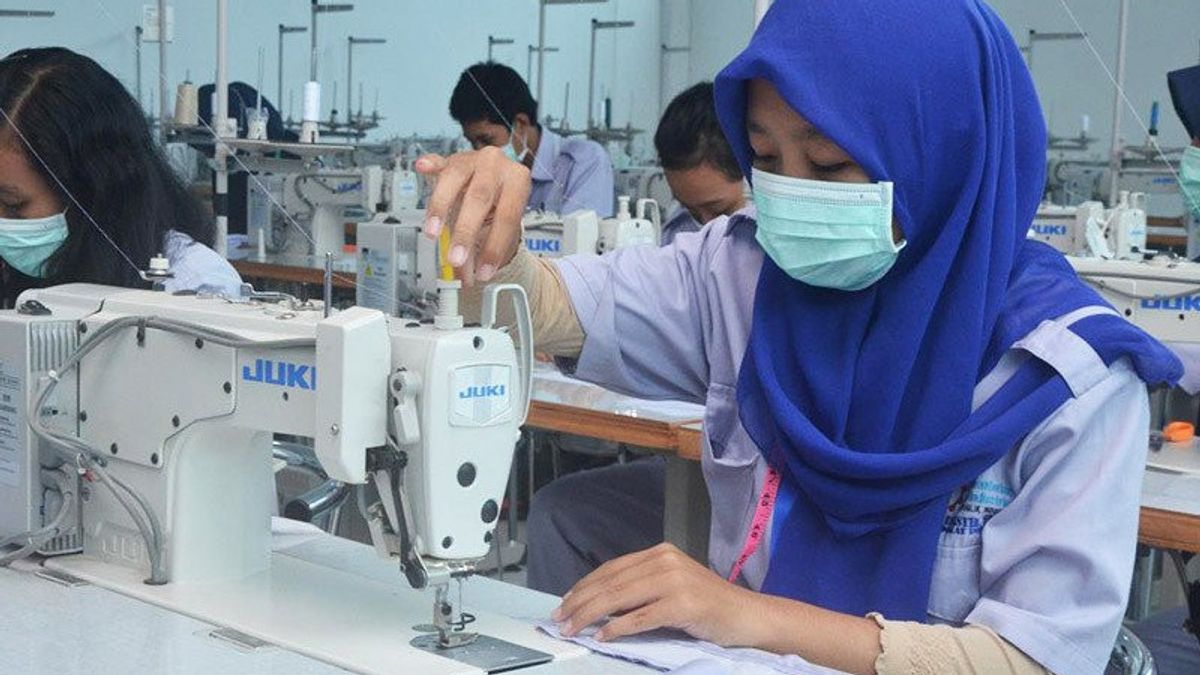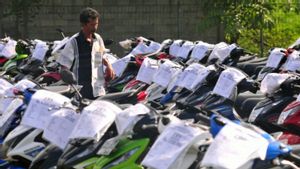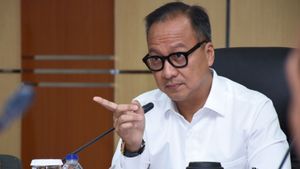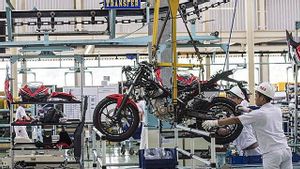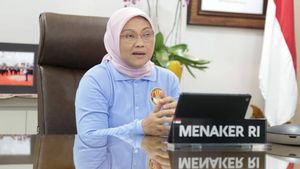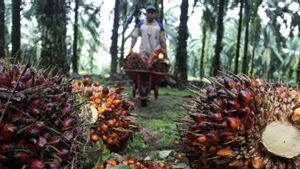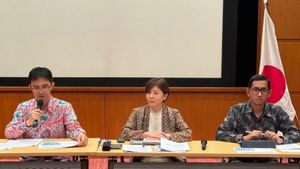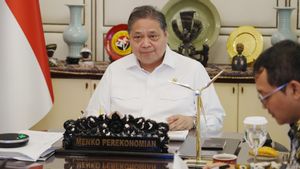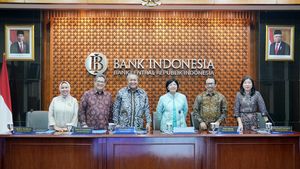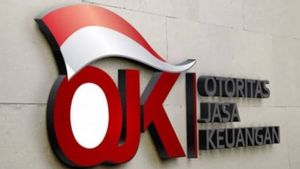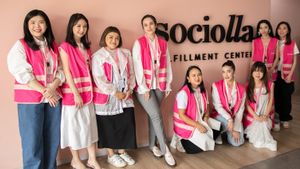JAKARTA - The condition of the textile industry is now starting to recover after being critically affected by the COVID-19 pandemic. In fact, the textile industry has begun to show its resilience again with the summons of 60 percent of employees who have been laid off. This number is out of the total layoffs since the first quarter of 2020 of two million workers.
Secretary-General of the Indonesian Textile Association (API), Rizal Tanzil Rakhman, said the condition was due to an increase in demand from the United States and Europe. The situation in these two countries has begun to recover.
Furthermore, Rizal said the two countries are one of the largest market shares for Indonesian textile exports. With the situation recovering in the two countries, this has become a lever for the domestic industry.
"Yesterday, almost two million employees were laid off in the second quarter of 2020 at the start of COVID-19, so now almost 60 percent have been called back", he said when contacted by reporters in Jakarta, Friday, June 25.
Rizal said the call for employees will continue to be carried out by the textile industry in stages. He said this effort is of course taking into account market demand which is also still growing gradually.
COVID-19 cases can hamper export demand
Even so, Rizal admitted that he was worried about the increasing number of viruses that cause COVID-19 in the country. This is because it can hamper the demand for exports from abroad.
As is known, active cases of COVID-19 in the country have continued to increase in recent times. Even on June 24, cases hit 20,574 for the first time since the first case was announced on March 20, 2020. While on June 25, there were 18,872 new cases. So that the cumulative total cases reached 2,072,867.
"The issue of COVID-19 in the country is increasing, we are worried that there will be a decline due to limited activities. Then also export performance has slowed down a bit because domestic production is somewhat hampered", he said.
So far, Rizal said, the textile industry has implemented the COVID-19 health protocol strictly even though its production involves many workers. Not only that but the resulting product is also guaranteed to be virus-free because it has gone through a fairly long sterilization process.
Rizal said that since the outbreak of COVID-19 in early 2020, the textile industry has never been a cluster for the spread of new viruses. So that safety is guaranteed.
"We will try to increase vaccinations for all employees even though the number of vaccines is limited. Nearby, we will vaccinate in Bandung Regency as many as 6,000 vaccines for employees", he said.
Fulfill textile needs, the Ministry of Industry prepares human resources
The Ministry of Industry continues to strive to prepare competent human resources (HR) to meet the needs of the manufacturing sector, including the textile and textile product (TPT) industry.
Minister of Industry Agus Gumiwang Kartasasmita said the provision of a skilled workforce is believed to boost the productivity and competitiveness of the industrial sector. Thus encouraging national economic growth.
SEE ALSO:
"Moreover, the textile industry is one of seven sectors that receive development priorities by the implementation of the Making Indonesia 4.0 roadmap", he said in a written statement, quoted Friday, June 25.
Agus explained that so far the textile industry has played an important role in making a significant contribution to the national economy. In addition, this sector is also considered strategic because it is a labor-intensive sector with an export orientation.
The export performance of the textile industry was recorded at 10.55 billion US dollars in 2020. Meanwhile, from year to year, the absorption of labor in the textile industry sector continues to increase. In 2019, there were 2.8 million workers, up from 1.7 million workers in 2018. Meanwhile, in 2020, despite the pressure from the pandemic, labor absorption in the textile sector actually jumped to 3.9 million people.
"The high demand for expert-level workers for the textile industry has made the Ministry of Industry take the initiative to collaborate with the Solo City Government, the Central Java Indonesian Textile Association (API), and Solo Technopark to establish AK-Textile Solo", he said.
AK-Textile Solo was established at the end of 2015 and was inaugurated directly by President Joko Widodo in January 2016. AK-Textile Solo organizes an educational program equivalent to Diploma II which consists of three study programs, namely Yarn Making Techniques, Fabric Making Techniques, and Garment Making Techniques.
To date, AK-Textile Solo has graduated more than 1,000 students, with a total of 300 graduates each year. In fact, 100 percent of these graduates are immediately absorbed in work in large textile companies spread across various parts of Indonesia, such as PT Pan Brothers, PT Mataram Tunggal Garmen, and PT Sritex, Tbk.
Meanwhile, the Head of the Industrial Human Resources Development Agency (BPSDMI) of the Ministry of Industry, Arus Gunawan, emphasized that AK-Textile Solo is a pioneer of vocational education and has become a reference because it builds good collaboration between educational institutions and industry.
"This means that AK-Textile Solo can supply competent workers according to the current needs of the textile industry", said Arus.
The English, Chinese, Japanese, Arabic, and French versions are automatically generated by the AI. So there may still be inaccuracies in translating, please always see Indonesian as our main language. (system supported by DigitalSiber.id)
